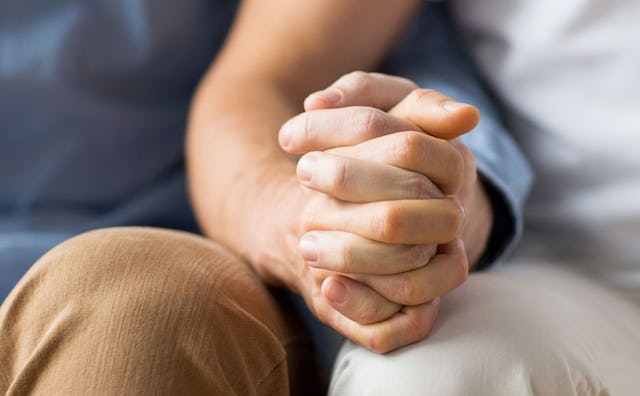What The Marriage Equality Decision Means To Me

I shouted with joy when I heard the Supreme Court verdict upholding marriage equality on Friday morning. I happened to have my children with me, and of course, they demanded to know why I was so happy.
I did my best to explain what the verdict meant and why it mattered. My children know and love several people who are gay, and they were confused as to why we needed a Supreme Court decision to give our friends equal rights. Still, they seemed to accept that this was reason enough for my excited outburst.
But there was something I wasn’t telling them.
Their grandfather, my father, was gay. A prominent attorney who had himself argued in front of the Supreme Court, my father died from AIDS when I was just 8—one of the very first cases in Florida.
No one told me any of this at the time, so I didn’t know why there was so much secrecy around his death or why I was suddenly ostracized by my third-grade classmates. This was 1982. People thought AIDS was spread through sneezes and handshakes.They sure as hell weren’t going to let their precious children come within 20 feet of a kid whose dad died from it. Eventually, I had to leave my public school altogether.
I moved to a private school the next year, and eventually we moved away from Florida. But I felt there was something I didn’t know. I kept asking questions until one day, a few years later, I pieced it all together. “He had AIDS, didn’t he?” I asked my mother.
She admitted that he did, and over time, I got as much of the story as she knew. It wasn’t a lot. By the time the doctors figured out what was wrong with him, he was in a coma, and she couldn’t ask him any questions. A close friend of his, J., filled in a few blanks: there had been affairs with men, one in particular. That man had died earlier. Not long after my dad passed away, J. died too.
Here’s what I remember about my dad: he wore jeans, always pressed, and an assortment of colored Izod shirts. He loved old cars, especially his white MG. He baked cookies; my favorites were the “surprise cookies” that had M&Ms hidden inside. He was a photography buff who took a photo of my baby sister, who was just a year old when he died, that won a prize in a Cheerios contest.
He took me for a ride in the Goodyear blimp when I was 6. He got sick the next year and was in and out of the hospital after that, sometimes for a long time. Just after I turned 8, I saw him collapse on the floor one night, and he never came home.
I remember the night he died. I was too shocked to cry. Why hadn’t anyone told me he would die? I remember the memorial service, too. I wore pantyhose for the first time, and a family friend bought me nice shoes. We sang his favorite songs, “Morning Has Broken” and “Amazing Grace.”
As kids do, I adapted and moved on. I didn’t talk much about my dad. It made my mom sad to talk about him, and she was having a hard enough time as it was, raising an 8-year-old and a baby alone and broke. In time, I didn’t think about him much either.
The next time I did think about my dad was in college, when the movie Philadelphia came out. The film in many ways paralleled my dad’s life, and watching Tom Hanks deteriorate on screen brought it all back. I stayed in the theater long after the credits rolled, and even then, I couldn’t stop sobbing.
These days, I’ve shared his story with more people. As being gay has become more accepted and AIDS less prevalent, it’s not as fraught a tale. Still, it will be awhile before I tell my kids who their grandfather really was. We’ll watch Philadelphia together, and I will tell them the things I know: that he loved books and gadgets and Star Wars, and how much he would have adored them.
Late on the day the decision was announced—after the kids were away for the night, after I texted my closest gay friends to tell them I loved them—I posted a photo of my dad and me on Twitter with the hashtag #LoveWins. Then, I finally let myself cry.
I cried because my dad deserved a better world. Because he felt like he had to hide who he was. Because I never really knew him. Because if he could have just lived another 32 years, he would know, without a doubt, that there was absolutely nothing shameful about who he was.
We’ve come such a long way. And love does win, eventually. Just not always in time.
This article was originally published on